Nifong: Intentionally avoiding pursuit of evidence
For many, the public disclosure of the Nifong/Meehan conspiracy crystallized the conclusion that Defendant Nifong’s egregious misconduct was as abhorrent as the Hoax defense team, the blogs, selected segments of the old media, and many other commentators had suggested for nearly a year prior to the December 15 hearing. F. Lane Williamson, chair of the NC State Bar Disciplinary Hearing Commission charged with determining the fate of Defendant Nifong’s law license, perhaps expressed that startling Perry Mason moment best at Friday’s hearing on Nifong’s motion to dismiss.
F. Lane Williamson:While the misconduct, described as “offensive” by NC Attorney General Roy Cooper, of rogue prosecutor Mike Nifong is readily apparent in the context of the DNA conspiracy, the disgraced district attorney’s unethical refusal to view additional exculpatory evidence offered by the defense attorneys further demonstrates that Nifong's intention was never to seek justice, but rather to prosecute regardless of innocence.
“We're talking about DNA testing that was done. And, of course, everybody--you know, whether it's justified or not--puts a lot of credence in that. And it's one thing to have--well, as a layman, I understand when the person who does the testing tells me, "I didn't find anything on these lacrosse players."
I also understand as a layperson if he tells me, "But we found DNA from other men." I also understand as a lawyer that it's one thing--you know, using the old thing--absence of evidence is not evidence of absence. But here, knowing that there's testing that has found DNA from other people, that is evidence of absence. And I don't need to be--I don't need to understand anything about the science. That's all I need to understand.”
In its Criminal Justice Section Standards for prosecutors, the American Bar Association describes a prosecutor’s duty to pursue evidence of both innocence and guilt in service of justice as follows:
Standard 3-3.11 Disclosure of Evidence by the ProsecutorPreviously, the ABA’s Standard 3-3.11(c) had read:
(c) A prosecutor should not intentionally avoid pursuit of evidence because he or she believes it will damage the prosecution's case or aid the accused.
"A prosecutor may not properly refrain from investigation in order to avoid coming into possession of evidence that may weaken the prosecution's case, independent of whether disclosure to the defense may be required. The duty of the prosecutor is to acquire all the relevant evidence without regard to its impact on the success of the prosecution."The ABA Standards take the ethical responsibilities one step further by demanding that no prosecutor hide evidence of innocence from a grand jury:
Standard 3-3.6 Quality and Scope of Evidence Before Grand Jury
(a) A prosecutor should only make statements or arguments to the grand jury and only present evidence to the grand jury which the prosecutor believes is appropriate or authorized under law for presentation to the grand jury. In appropriate cases, the prosecutor may present witnesses to summarize admissible evidence available to the prosecutor which the prosecutor believes he or she will be able to present at trial. The prosecutor should also inform the grand jurors that they have the right to hear any available witnesses, including eyewitnesses.The North Carolina State Bar’s Revised Rules of Professional Conduct attaches the following comment to Rule 3.8:
(b) No prosecutor should knowingly fail to disclose to the grand jury evidence which tends to negate guilt or mitigate the offense.
With respect to evidence and witnesses, the prosecutor has responsibilities different from those of a lawyer in private practice; the prosecutor should make timely disclosure to the defense of available evidence known to him or her that tends to negate the guilt of the accused, mitigate the degree of the offense, or reduce the punishment. Further, a prosecutor should not intentionally avoid pursuit of evidence merely because he or she believes it will damage the prosecutor's case or aid the accused.Clearly, Defendant Nifong had, at a minimum, an obligation to not avoid exculpatory evidence. For nearly a year prior to his thinly sliced apology to the wronged survivors of his hijacked Hoax, Nifong repeatedly showed an unwillingness to uphold his ethical responsibility to not hide from evidence that stood in the way of his political ambitions by hindering his Hoax.
The first recorded instance of Defendant Nifong’s refusal to meet with defense attorneys occurred in March 2006.
"Cheshire wrote in his letter that on March 29, he had his paralegal, Moira Bitzenhofer, call Nifong's office to set up a meeting so the defense lawyer could talk to the prosecutor either in person or on the phone. Nifong, through his assistant, Sheila Eason, declined to talk with Cheshire." N&O
"Stunned by Nifong's increasingly strident public statements, defense lawyer Joseph B. Cheshire V tried to talk to the prosecutor last spring.In April Defendant Nifong continued to refuse to view or consider evidence of innocence prior to indicting innocent men for a crime that did not occur.
"Nifong "is not going to talk with any attorneys while there have been no charges filed, and ... if Joe Cheshire feels that his client should be charged, then he should tell the police department," Nifong's paralegal responded." N&O
April 4
"Thomas asked Nifong to investigate fully before bringing charges. He offered to share facts and evidence with the prosecutor.
"Thomas said Nifong wouldn't listen: "He said that he had personally interviewed her and had spoke with her at length about this case, and that he fully believed every word she said about this incident, and that he knew a lot more about this case than I did, and that he was going to proceed as he saw fit."
"Nifong was smug and self-assured, Thomas said: "I had 27 years of experience with him, and he was looking me in the eye. He said he had interviewed her, he discussed the details of the case, he believed her and that my view of her as perhaps being a call girl working for an escort service, running around making things up for financial gain, was absolutely false. ... He went on to say what a wonderful person she was. He said she was fully believable, she was intelligent, articulate ... and telling a convincing story about what happened." N&O
April 13
"Thomas, meanwhile, was putting together a delegation to meet with Nifong. He chose the other lawyers he thought Nifong would most likely listen to: James D. "Butch" Williams Jr., a highly regarded Durham defense lawyer; and Wade Smith of Raleigh, the cordial dean of the North Carolina defense bar.
"Smith did most of the talking. "Please slow down," he said to Nifong.
"Smith asked for a dialogue and said the defense lawyers would open their files and share with Nifong all the evidence they had gathered. They hoped he would see that the charges were false.
Nifong put his hands over his ears, Smith said. So he let Nifong speak.
'I know a lot more'
"Gentlemen, I know a lot more about this case than any of you do, and I'm going to proceed as I see fit."
"The meeting had lasted less than 10 minutes. As the lawyers stood to leave, Nifong grew visibly angry and launched into a tirade: "And by the way, you can tell that [expletive] Cheshire that ..."
"Williams cut Nifong off: "Don't even go there. We don't want to hear about Joe."
"As the lawyers walked down the hallway to the elevators, they shook their heads. There was no talking with Nifong. He was going to obtain indictments, and nothing would stop him." N& O
April 17
"Nifong rebuffed efforts by three defense lawyers to present him with exculpatory evidence before he went to the grand jury to get the players indicted. On the day of the indictment, he refused to see Kirk Osborn, the lawyer for Reade Seligmann." MSNBC
"Kirk Osborn, the attorney for Reade Seligmann, let it be known that he had visited Nifong early on to show him some exculpatory evidence, and that Nifong refused to see him. Shortly thereafter, some of that evidence became public. One or more of the players had photographed the party with a digital camera, which provided time-stamped photographs that helped to establish a time line of events. Through these pictures, and phone records, a taxi-driver’s statement, security pictures at an A.T.M., and computerized entry documentation, Osborn was able to demonstrate convincingly that Seligmann was on the phone or in a cab during much of the time when the attack allegedly took place." New YorkerNifong’s strategic decision not to consider evidence that debunked the false accusations his career depended on was not limited to only the cases of Reade Seligmann and Collin Finnerty, nor did his efforts to hide from evidence of innocence end with those first two indictments. When David Evans was indicted a month later, both Evans and his attorney, Joe Cheshire, described similar refusals by Defendant Nifong.
Evans said that for weeks he has been trying to contact District Attorney Mike Nifong, who is prosecuting the case. Defense lawyers have complained that Nifong was not accepting evidence that may prove their clients innocent.
"All of my attempts have been denied. I've tried to provide him with exculpatory evidence to show him this could not have happened," Evans said, adding, "apparently, there's a lack of interest in my story — the true story."
...
"I've never in my entire life had a prosecutor refuse to see any evidence ... when your ears are shut and your eyes are close and your mouth is open, sometimes you don't want to see the truth," Cheshire continued, saying he believes Nifong's persistence in pursuing this case is purely for political reasons.Repeated instances of Nifong's failure to meet his ethical obligation as a prosecutor to consider exculpatory evidence possibly damaging to his case were not only reported by the defense attorneys, but they were also documented by NC Attorney General Roy Cooper.
"This is one of the saddest days for justice in the state of North Carolina. This case has been taken out to the news media before an investigation was finished by a person seeking public office. Accusations against many, many young men were made before an investigation was completed," Cheshire said.
"This community has been torn apart intentionally on racial lines, on political lines and these boys have been chopped up in the process. They are victims, their families are victims. This community is a victim and our justice system is a victim. And these boys not only will prove that they are not guilty but they will prove unquestionably that they are innocent." FOX
"The lawyers tried to give him this stuff and he didn't want to take it," says State Attorney General Roy Cooper. "If you're a prosecutor and the defense attorney is willing to come in and give you information about the case, give you what they have, then you say, 'Yes, please come in and let me know what your case is.'" CBSAs late as December, Nifong’s resistance to adhering to the ethics rules continued.
On Dec. 5, Jim Cooney met Mike Nifong for the first time. Cooney, a veteran defense lawyer from Charlotte, had recently taken over as lead attorney for Reade Seligmann, one of three Duke lacrosse players Nifong had charged with rape.Incredibly, despite his well-documented history of repeatedly refusing to view or consider evidence offered by the defendants, Nifong hypocritically claimed to the Court and to the State Bar that the defense attorneys were withholding evidence from him.
Cooney wanted to start on the right foot with the man trying to put his client in prison for 20 years, so he began with a goodwill gesture. Back in May, Seligmann's former top lawyer had filed a motion arguing that Nifong's misconduct was so severe that a judge should yank the district attorney off the case.
Cooney withdrew the hostile motion four days before meeting with Nifong in his sixth-floor office.
"You don't want Reade Seligmann in the case," Cooney recalls saying. A jury would never convict Seligmann because of his powerful digital alibi: Cell phone records, an ATM surveillance photo and dorm records showed Seligmann left the party minutes after the two dancers stopped performing.
According to Cooney, Nifong said he was displeased that Seligmann's prior attorney had made the alibi public.
"There is no such thing as an airtight alibi," Nifong said.
Cooney was prepared to offer to bring in Seligmann for questioning. He was willing to open his entire file and investigation, but Nifong again said he would stick by Crystal Mangum's story.
"There is nothing you can show me that will change my mind," Nifong replied. "Only her and her story. As long as she's willing, we're going forward." N&O
To the Court:
"Nifong asserted that none of the defense attorneys had provided him with the info. on "reciprocal discovery" relating to the evidence of their innocence.
"He was quickly corrected by Jim Cooney, Reade Seligmann's co-counsel, who noted that months ago co-counsel Kirk Osborn filed a statement of alibi defense.
"Nifong, at the time, asserted that he hadn't read the Osborn motion, because he was too busy to read "fiction."
"Sheepishly, Nifong then admitted that he had in fact received the Seligmann evidence. Nothing like the DA making a demonstrably incorrect affirmation to the Court." KC Johnson
To the State Bar:To the public, Nifong and his helpers in the Durham Police Department decried the imagined lack of cooperation as a conspiracy of silence.
“By comparison, in response to the State’s reciprocal discovery request filed on May 18, 2006, the defendants have furnished nothing despite having furnished photographs and other evidence to national media outlets which have aired them as “defense evidence.”
"The only such items the State has seen are black-and-white plain paper photographs of attached to Seligmann’s notice of alibi defense.” --Nifong to the State Bar
Herald Sun reporter Brianne Dopart wrote:
“Addison said police approached the lacrosse team with the five-page search warrant on March 16, but that all of the members refused to cooperate with the investigation. The refusal led officials to issue a "non-testimonial" order -- which allows police to threaten suspects with legal consequences if they choose not hand over evidence -- for each player's DNA." LS
Cpl. David Addison is quoted as saying:
"Addison said it was "unfortunate" that police had to go to such lengths, but that the team members "denied participation or knowing anything."
"Addison said the team got several chances to cooperate with police and that the non-testimonial order was issued only after the players kept silent."
"We never would have had to do those swabs if they would've cooperated," he said. Addison said police can't force samples from anyone they believe to be implicated in a crime. But he said that, in this situation, there was "really, really strong physical evidence" that police will be able to compare with DNA results.” LS
Nifong:
"The lacrosse team, clearly, has not been fully cooperative," Nifong tells Rene Syler and the nation on the CBS Early Show, “I think that their silence is as a result of advice with counsel." CBS March 30
"If it's not the way it's been reported, then why are they so unwilling to tell us what, in their words, did take place that night?" Nifong told [George] Smith on Thursday. "And one would wonder why one needs an attorney if one was not charged and had not done anything wrong." ESPN March 30
"Later, Mr. Nifong would repeat the argument of the Wall of Silence Hoax, while arguing for the court to allow his subpoena for access to the unindicted players' personal information." LSIn May, Nifong would hint to the press that he had presented unpublished (and now we know non-existent) evidence supported his charges. Toying with Rita Cosby, Nifong would acknowledge "a lot more evidence in the hands of the defense attorneys" while coyly hinting that he had put it there and giving the impression that it was inculpating rather than exculpatory.
"NIFONG: One would hope that I would not be proceeding without some evidence. And there is a lot more evidence in the hands of the defense attorneys right now than most of the public knows about. And I expect that soon there will be more such evidence.In late June, Nifong pretended to the press that there were no facts which contradicted his hijacked Hoax. At the time, reporters were unaware that Nifong had already received definitive exculpatory findings from Dr. Meehan. Stating confidently that no evidence he had seen disputed his original assessment, Nifong failed to admit that he had purposefully hidden from the defense evidence and conspired to hide the exculpatory DNA results from the innocent defendants."[RITA] COSBY: Is it safe to say just in general, you have a lot more than we know about?
"NIFONG: I think that‘s probably pretty safe to say" MSNBC
"None of the 'facts' I know at this time, indeed, none of the evidence I have seen from any source, has changed the opinion that I expressed initially," NewsweekIn his thinly sliced pseudo-apology to his victims, Nifong pretended that the indisputable evidence of innocence that he unethically refused to hear was subsequently uncovered by additional investigation on the part of the special prosecutors who replaced him.
"Obviously, they have had access not only to all the evidence that I had, but also to additional evidence that I have not seen which they developed during their twelve weeks of independent investigation. I have every confidence that the decision to dismiss all charges was the correct decision based on that evidence." N&ODefense Attorney Joe Cheshire quickly called out Nifong’s continued deception.
"This is not an apology," said Joseph B. Cheshire V, an attorney for Evans. "This is another attempt by Mr. Nifong at revisionist history, the same thing he has done with the facts throughout this entire case. ... He had access to all the evidence in this case except that which he chose to ignore because it did not comport with his version of what he wanted the case to be." N&OIn response to Cheshire’s calling out Nifong’s deception, the rogue prosecutor’s spin master, David Freedman, defended Nifong’s statement and pretended that Nifong had not taken the opportunity to rationalize his actions and words.
"One of Nifong's attorneys, David Freedman of Winston-Salem, defended the statement.It appears, however, Defendant Nifong did answer these claims directly in his response to the State Bar charges. Not surprisingly, Nifong remained unrepentant and truth averse in his reply. Despite the voluminous documentation of numerous instances of his failure to comply with his obligation to not avoid exculpatory evidence, Nifong denied having ever refused offers to consider evidence of innocence.
"I don't know what could be more direct to say, 'I apologize to these three students,'" Freedman said. "There are people out there, who regardless of what Mike Nifong can say, they're not going to accept it." N&O
"206. Before the Duke Defendants were indicted, Nifong repeatedly refused offers from counsel for the players who were eventually indicted to consider evidence and information that they contended either provided an alibi or otherwise demonstrated that their clients did not commit any crime." -- State Bar ComplaintPerhaps the best hint of the damage to be done by Nifong's intentional avoidance of evidence is found in the caution issued by Butch Williams last spring.
"206. The allegations contained in paragraph 206 of plaintiff's Amended Complaint are denied." -- Nifong Answer
"What happens if the DNA comes back and it's none of these young men? How do you apologize to them? How do you make it right? How do you restore their character?" said defense attorney Butch Williams.
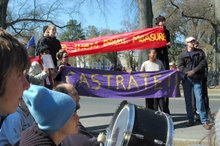




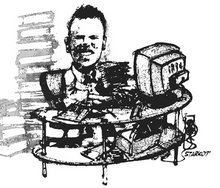
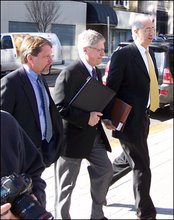
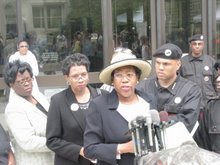
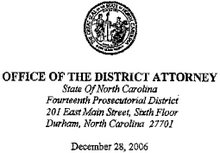
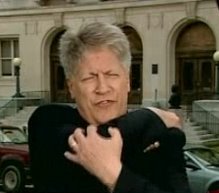

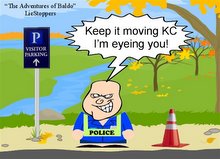

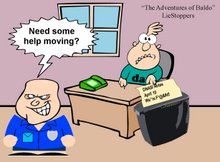
















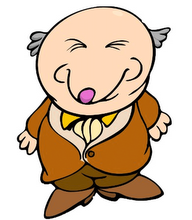
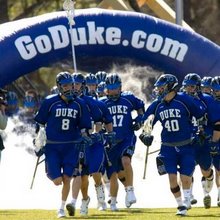

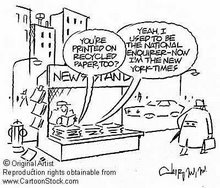

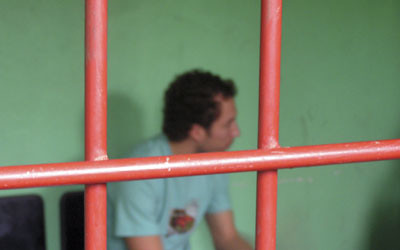
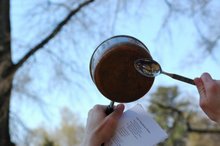


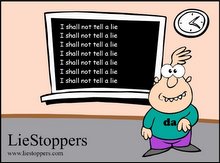






6 comments:
Nifong is a stiff. His career has assumed "room temperature" but he doesn't yet realize it. Of course he didn't seem to realize for 13 months that his case was a stiff and also had assumed "room temperature." (Dead for those of you wondering what room temperature implies)
Excellent article - you guys!!!!
YET this fool is still running the office an has input into important cases.
Unreal that this idiot can still be in denial and practicing law.
Surely, Easely has to stand him down for the good of every one?
This was an excellent -- and devastating -- post. Liefong and his lawyers can try to re-write history all they want, but there is a very, very long paper trail and no one can dispute what everyone else can see.
The ONLY satisfactory end here is for Nifong to receive a very, very long prison sentence. What he did was as close to attempted murder as one can do without actually killing anyone. He tried to use the mechanism of state "justice" to kidnap three innocent young men, throw them in prison, and expose them to rape, beatings, and possibly murder.
He needs to be punished and punished severely. Losing his law license is NOT good enough. He needs to forfeit his freedom in return for what he and his co-horts did.
To me one of the most amusing/shocking points is alluded to by the AG:
"If you're a prosecutor and the defense attorney is willing to come in and give you information about the case, give you what they have, then you say, 'Yes, please come in and let me know what your case is.'"
OK, for just a second let's give Nifong the benefit of the doubt and assume that he believed his case. What prosecutor in his right mind wouldn't leap at the chance to get a preview of the defense case? Either seeing the evidence they present will convince you not to use limited department resources on this case, or it will give you advance notice of the evidence they may try to use against you in trial. From a prosecutor's perpective, it sounds like a win-win proposition. What lawyer would be so stupid as to say "no, I'd rather be surprised in trial"?
Assuming he believed his case, and even if he was 100% certain that their info wouldn't change the decision to proceed, I can't see any sane reason to avoid seeing the evidence. If you don't have the time, have them present it to someone else in the office. If he believed the case, he'd want to get as much as possible of the defense case on the record in advance.
The only way I can make sense of such a course of action would be if he, at some level, *knew or strongly suspected* that the case could be disproved, and wanted to maintain plausible deniability, to be able to claim later that he didn't *know* it was a hoax.
In that context, deliberately avoiding seeing exculpatory evidence suddenly seems at least minimally sane. That's a pretty scary context, indeed...
I really have nothing more to add to Eric's comments. While I risk sounding like one of Rush Limbaugh's sheep, all I can really say to your comment is "ditto." The only logical explanation for the 'Fong's behavior was that he was intentionally, maliciously ruining three innocent young men's lives just to get reelected. As obvious as this has been from almost the beginning, it's amazing how it can still manage to be shocking.
Post a Comment